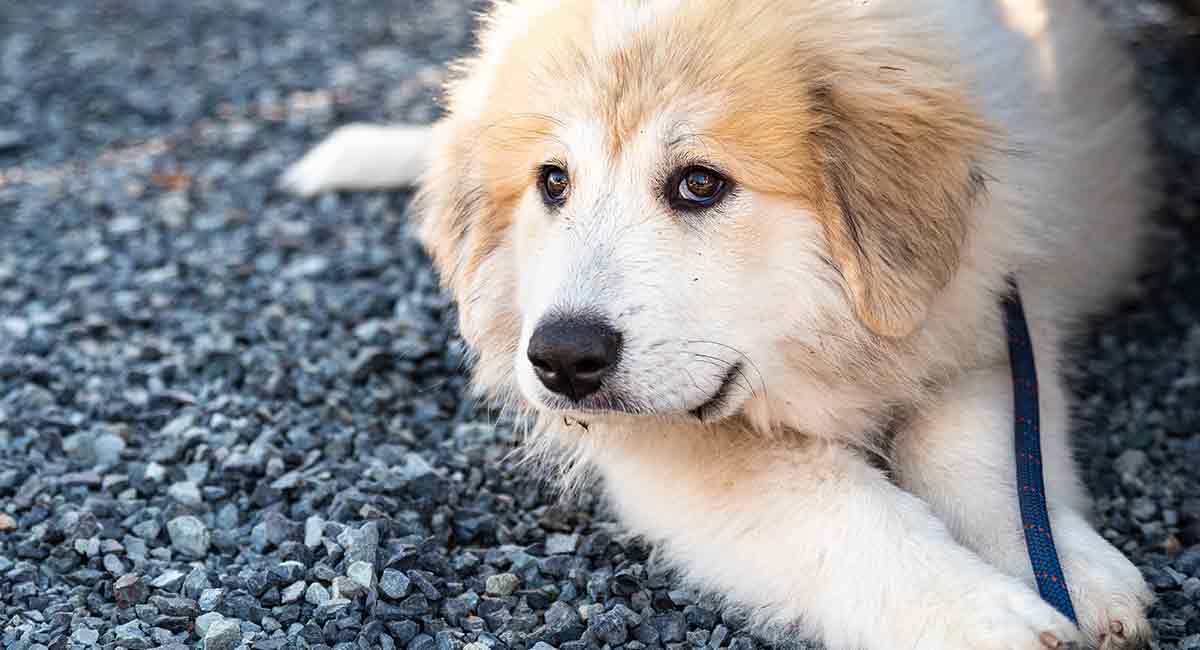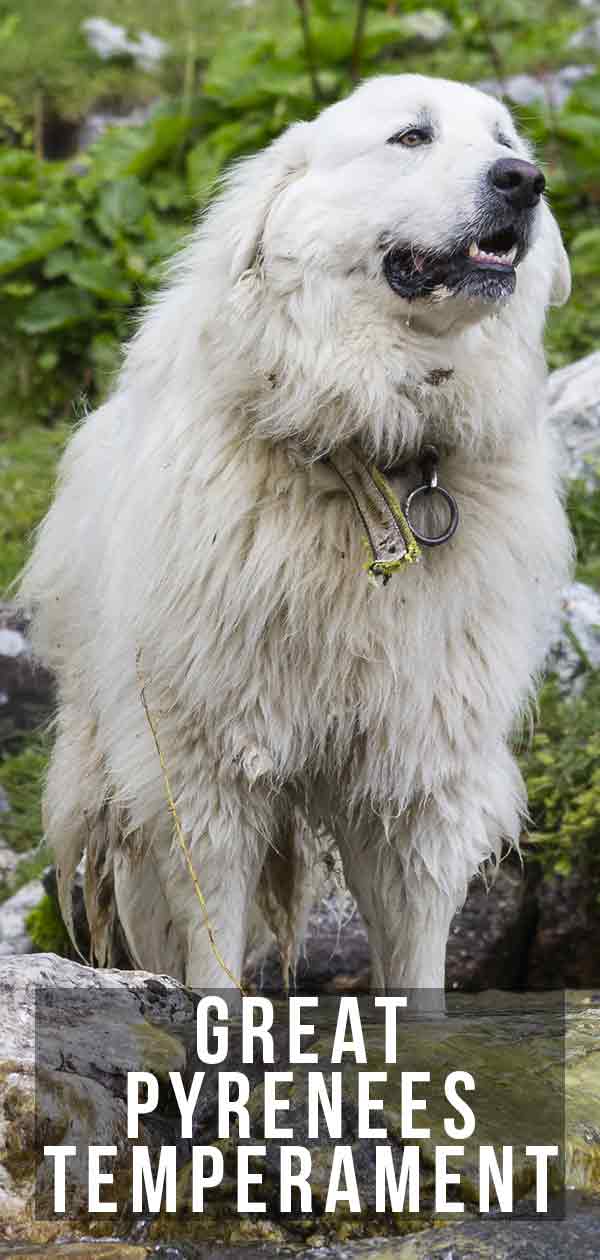Great Pyrenees disposition is fast , affectionate , patient and calm air . These stubborn , solid willed frank make fantabulous watchdogs and sentry duty dogs too . Although they can be aggressive with alien , they are strongly tie to their kinsfolk and very cool down out when in an environs they are relaxed in . They are secure with child , dogs and animals they have a go at it , but less so with others .
Contents
The giant , royal Great Pyrenees is immensely knock-down and firm , often tipping the scales at more than 100 quid . They can stand intimately 32 inches at the shoulder . They lark thick coats that help them coalesce in with the sheep they were breed to protect . But do n’t let their coming into court or personality arse around you . Many owner even account them as Zen - like , which is a far vociferation from their rough , intimidating exterior . But how reliable is this description of their personality ? Are these huge pawl really as laid back as some people arrogate ?
Typical Great Pyrenees Temperament
The Great Pyrenees is often described as a olympian , baronial hotdog . They carry themselves with self-assurance and have a speck of gracefulness despite their large size . They are also attentive , wakeful , and alert . Originally breed to guard sheep , they still have those innate instinct today .
The Great Pyrenees can also be quite destructive . They are chewers and take lots of chewing toys and bones . Otherwise , they might start chewing on something you do n’t want them to .
They are rattling dog , so they may skin at anything they conceive might be a scourge . This can be trained out , but doing so is often more difficult than it is with other breeds .

Are Great Pyrenees Good With Kids?
The Great Pyrenees is fiercely protective of their territory , family , and belongings . They are practiced with their own kid , but might not apprize rough shimmer with others .
Socialization Can Change Great Pyrenees Temperament
acculturation is an important part of education for any breed . They require to learn how to recognize a friend from a foe . usher in them to a variety of people . Invite friends over regularly while they are young . Training makes a large dissimilar too .
Are Great Pyrenees Easy to Train?
The Great Pyrenees is usually not easy to train with traditional methods . They were bred to independently guard sheep . At a second ’s notice , they would have to decide whether an approaching animal or person was a threat and what to do about it – all without the direction of their possessor .
They have been report to greatly reduce the death of livestock . This trait often makes it difficult to convert a Great Pyrenees to listen to you , however . Get the habit of heed into your frankfurter at an early age . The longer you wait to train a capital Pyrenees , the harder it will be .
Positive Methods Work Well With Great Pyrenees Temperament
Positive reinforcement work intimately with the Great Pyrenees . They need to be win over that it is in their secure pursuit to heed to you .
Negative reinforcement can often have the opposite event . Instead of convincing your dog to mind , you might just convince them to become unregenerate and ignore you altogether .
Training should specifically focus on teaching your Great Pyrenees to react fittingly to visitant . If they are not taught how to recognize a welcome visitant , they can very easily construe them as an trespasser .

These wienerwurst are often described as becoming bored with standard obedience preparation very quickly . They are not a strain that will sleep with performing tricks for your extolment .
Instead , they are a working stock and love performing actual “ work . ” interest in agility test and other Canis familiaris fun helps them feel demand and stimulated .
Are They Friendly?
Great Pyrenees disposition build this breed well suitable to guard flocks of sheep . This means when they ’re herding they can determine which creature are under their caution and which animal are intruders .
This behavior carries over to their modern , family life . Even if your Great Pyrenees is n’t trained to guard sheep , they will often behave as if their family is their “ flock ” and everyone else is an “ intruder . ”
They are commonly friendly with those inside the home and those who they deal in their family . They will interact calmly and softly with child and are often very patient . However , this is often not straight with outsider .

Guarding Instincts
If a new , strange person approaches your door , the Great Pyrenees will automatically call up they are an intruder that is there to hurt their crime syndicate . They will defend their dwelling and family with extremely courage , even when the intruder is n’t actually an interloper at all .
It is important to teach them at an former eld that not everyone who make out to the door is needfully out to get them . Early socialization is cardinal to making this happen . But it often takes uniform , focused education as well . Many nifty Pyrenees dog owners school their dogs on a control that lets the frank know the new person is not a terror .
Are Great Pyrenees Aggressive?
The Great Pyrenees can be aggressive if not properly train and socialise . They will seek to defend their family from intruders , even if they happen to be one of your Friend or family members . However , most of the time , Great Pyrenees are not blatantly strong-growing .
They will not attack other people on sight , and there are not many causa of the Great Pyrenees bite other mass . Only about 22 % of Great Pyrenees are strong-growing towards strangers .
Instead , the Great Pyrenees disposition can be described as confident and tolerant . While they might not be friendly towards visitant , they do not automatically become unmanageable the minute someone walk through the door .
They are aloof and reserve , not fast-growing . With that said , some outstanding Pyrenees are more aggressive than others .
Causes of Aggression
Aggression grade are a concoction of genetic science , enculturation , and training . Whether or not puppy ’s parents were aggressive has a direct effect on whether or not the puppy will be aggressive .
When potential , we recommend encounter any puppy ’s parents you are considering adopting . The parent should not be belligerent , even if they might be somewhat offish .
Training and socialization are also important . Even a Great Pyrenees who is genetically calm can display signs of hostility if not socialized or check decent .
At the same time , a cad that is genetically predisposition to aggressiveness can become serene and liberal when prepare and socialized .
Basically , the Great Pyrenees disposition can be more fast-growing than some other breed of dog . But early breeding and socialization go a farsighted way of life to urinate this dog accept of outsiders .
Do Great Pyrenees Like Other Animals?
If you have another dog as a pet that has been around longer than the Great Pyrenees , the Pyrenees will often consider that dog as part of his or her “ flock . ” Treating other pets just like the rest of the family is part of the Great Pyrenees disposition .
The same sound for cats , rabbits , Capricorn the Goat , and any other animal . If the Great Pyrenees take care them as part of the category , they will get along with them .
However , trouble may stand up when you attempt to introduce your dog to an outside domestic dog .
Do Great Pyrenees Like Other Dogs?
It is not uncommon for dogs to be intolerant of other dogs they have not produce up with . Sometimes , this intolerance can exhibit itself as aggression . Of course , former socialization and breeding toy a huge role in this .
Natural Instincts in the Great Pyrenees Temperament
The most prevailing raw inherent aptitude the great Pyrenees has is their vivid , flock - defend instincts . They were engender to defend sheep and will transform that history into their class life . These dogs will guard their phratry , territory , and property against whoever they deem is a menace .
These guard behaviour are innate ; they do not need to be trained and will exist whether or not your dog has even been taught to guard .
socialisation and grooming can help these instincts translate good into workaday family life history , however .